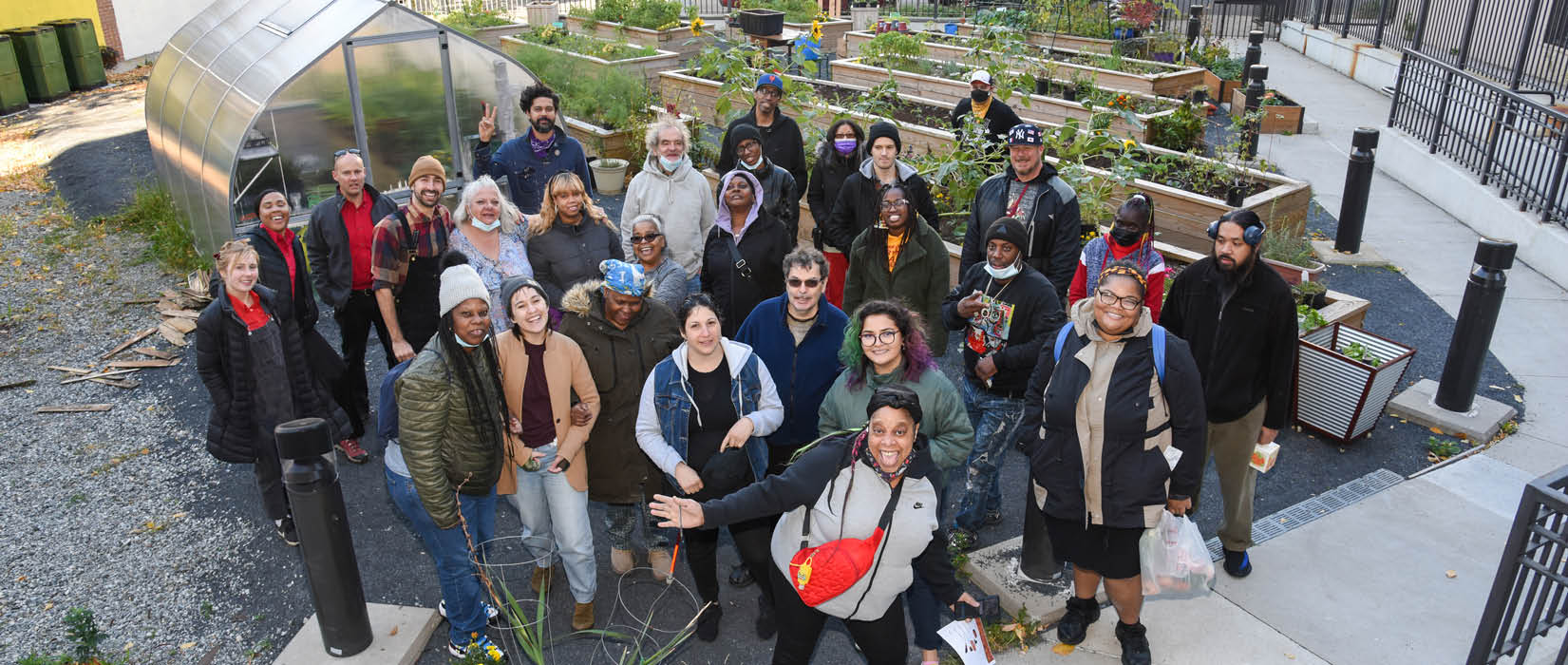THE ISSUES
The issues we face are heartbreaking and a clear call to action. Homelessness in NYC has reached the highest levels since the Great Depression. One in every 100 New Yorkers is without a home and relegated to sleeping in dorms in the shelter system or fully unsheltered and struggling to survive on the streets. Forty percent of individuals living in the shelter system are dealing with severe mental health issues and disconnected from care. Families with children represent almost 70% of people living in NYC’s shelter system. And, frail, elderly individuals experiencing homelessness is the fastest growing population in the shelter system – with a 300% increase in the past 15 years, and projections that this number will triple by 2030 if nothing is done.
Structural racism puts people of color, particularly Black and Indigenous people, at far greater risk of homelessness than White people – and the racial disparities in homelessness in NYC reflect this stark reality: 90% of individuals and families in the shelter system are people of color.
This is no accident; it is the result of centuries of structural racism and multi-generational roadblocks that have excluded historically marginalized people from equal access to housing, community supports, education, jobs, and opportunities for economic mobility. Even for people who are able to access affordable housing, there remains substantial inequities in education and job opportunities. One in five Black and one in nine Latinx New Yorkers are unemployed, or stuck in part-time jobs when they want full-time work. And, up to 90 percent of people living with serious mental health concerns are unemployed, which further exacerbates stress, anxiety, and depression and reduces access to the care needed to manage physical and mental health.
The experience of homelessness also dramatically elevates one’s risk of illness, injury, and death. People who are homeless are three times more likely to die prematurely than the general population: the average age of death of someone who has experienced homelessness is 50 years, the age at which Americans commonly died in 1900. For those who are living with mental health concerns, the toll is further life-threatening because of increased susceptibility to diabetes, cardiovascular diseases, and considerable metabolic side effects from psychiatric drugs.
HOUSING IS THE SOLUTION
Many people who come to Community Access have cycled through institutions for much of their lives – foster care, shelters, hospitals, jails, and prisons – while also living with the effects of structural racism, trauma, and poverty. For many, the world has not been a welcoming place. We endeavor to change that by opening our doors wide and nurturing communities built upon respect and a recognition of human dignity. First and foremost: we believe that housing is a human right and each of us deserves a home, a place to feel safe and secure.
We proudly use the low threshold Housing First model – access to stable housing without asking people to meet other requirements first to demonstrate housing readiness. This ensures that our housing is available to those who need it most. And, Community Access develops permanent housing, because we know that having a stable home is the essential foundation upon which people can shape their futures. A home can be a sanctuary, a place from which one can face challenges and embrace opportunities – somewhere to build the skills and supports one needs to achieve their goals: personal, professional, or health-related — whatever is important to each person.
We also understand that housing is a foundational part of someone’s trajectory, not the final destination. For this reason, above and beyond supportive and affordable housing, Community Access serves the most systematically underserved people a variety of other ways. On the pages in Our Work, we share the services we offer to promote health and wellness on many fronts: from housing stability, to physical and mental health, education and training, and digital equity.

